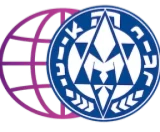By: Romi Morales
A personal story
Long time ago, my mother decided that our garden would look nicer if it had trees. She called the gardener and asked if he could plant a plum tree and a lemon tree in our garden. A few days later, two new members had arrived at our garden. Several months passed until came and a very cold winter night, a terrible storm began with strong winds and hail. Of course, no one left home until the rain stopped. And when that happened the first thing we did was run to the garden, then we saw the plum tree, broken, lying on the garden. The wind had ripped it from the ground and had taken it several meters away from its original place in the garden. And on the other hand, firm and straight, the lemon tree. Some leaves had fallen, but the tree didn’t. My dad asked us when he saw the situation: “What is the difference between both trees? Why did one manage to overcome the storm and the other was devastated by it? We tried to answer the question, but I still believe he had the best: “It seems to me that the difference between the two was that the
lemon tree managed to develop strong and deep roots, while the roots of the plum tree were weak and still quite superficial.”
Strengthening roots, building identity.
If we had to make a parallel with our role as educators, we could ask ourselves: What is needed to strengthen “the roots” of our chanichim? How can we, through our educational mission, ensure that our chanichim manage to build a strong identity that allows them to overcome the storms that may arise throughout life? In my humble opinion, I believe that, in order to fulfill these objectives, we need to work mainly in three areas: a) values, ideas and principles that constitute the way of understanding the world and how we intervene in it (Worldview) , b) aptitudes and skills that allow us to apply our ideas in practice and c) significant formative experiences.
a) Worldview
One of the key elements that we have as educators to nurture and ensure the growth of the “roots” of our chaverim, is the basket of moral values that frame the world’s shape, along with the ideas and principles that allow it to intervene in it. The ethical-ideological aspect is central to the development of our chanichim, since when they have a clear vision and mission in life, the motivation to cope with “storms” is even greater. In this sense, the ethical baggage of our people, of the Zionist heritage and of the liberal humanist conception to which we educate in the tnua, act in our chaver as an anchor in a world where “to lose oneself” or to be whipped and “torn” by the strong winds of postmodernity is an everyday challenge that they usually face.
b) Aptitudes and skills
In parallel to teaching them to “be”, another fundamental element in preparing our chaverim for life is to teach them to “do”. It is known that, especially today, young people are not lacking information. When doubt on how to solve a problem, just ask Google to receive a wide range of responses.
Although “theoretically” the solution is at hand, the truth is that many times, translating it into action is practically impossible, especially when the problems are complex. This is so, especially regarding the identity construction of the chanich.
In this context, the Tnua stands as an ultimate platform, since it offers our chaverim a safe space to question who they are, what they want, what kind of mark they want to leave, how they want to live their Judaism, Zionism, their bond with Israel in particular and with the world in general. But the Tnua does not settle with that, the Tnua grants concrete tools and opportunities to put these concerns into practice so that, through learning and experience, our chaverim can become that person they aspire to be. Introspection, analysis and critical thinking are those that contribute to the chanichim
being in constant search to build meanings, the basis for creating strong and solid roots.
c) Significant formative experiences
We define “significant experiences” as those magical moments that we keep in the mind and in the heart, that synthesize in a unique and special way we have lived, where the “know to be” and “know to do” converge creating a living memory that serves us of guidance throughout our life.
Many times, it may happen that we have the theoretical knowledge, information, expertise and even the necessary tools to face the vicissitudes that the road presents to us and even then, feel that it is not enough for us to “endure” the downpour.
In these cases, the “significant formative experiences” are those that bring us back to those moments, places or people that function as a beacon, lighting our way. I think that the Tnua is the ideal framework to create, produce and facilitate experiences of this style, since there are madrichim worried about thinking, creating and planning the best possible strategies, dynamics and activities so that the chanichim can be nourished as human beings, develop and exploit their full potential, both on warm spring days and on raw winter nights, under the most intense storms.
….
Today, in Tu Bishvat, this little personal story takes on a new meaning for me and that is why I would like to dedicate it to the Madrichim and Madrichot of our Tnua, who with so much love, affection and dedication work Saturday to Saturday to strengthen Jewish, Zionist and humanists roots of our chaverim and chaverot.










